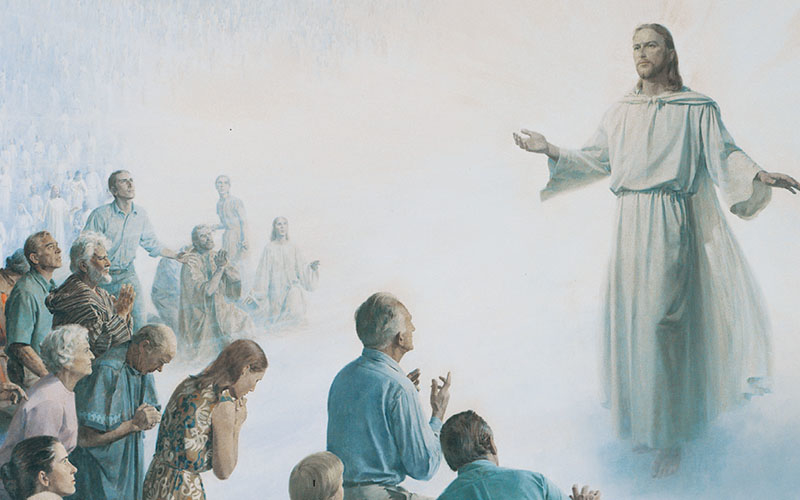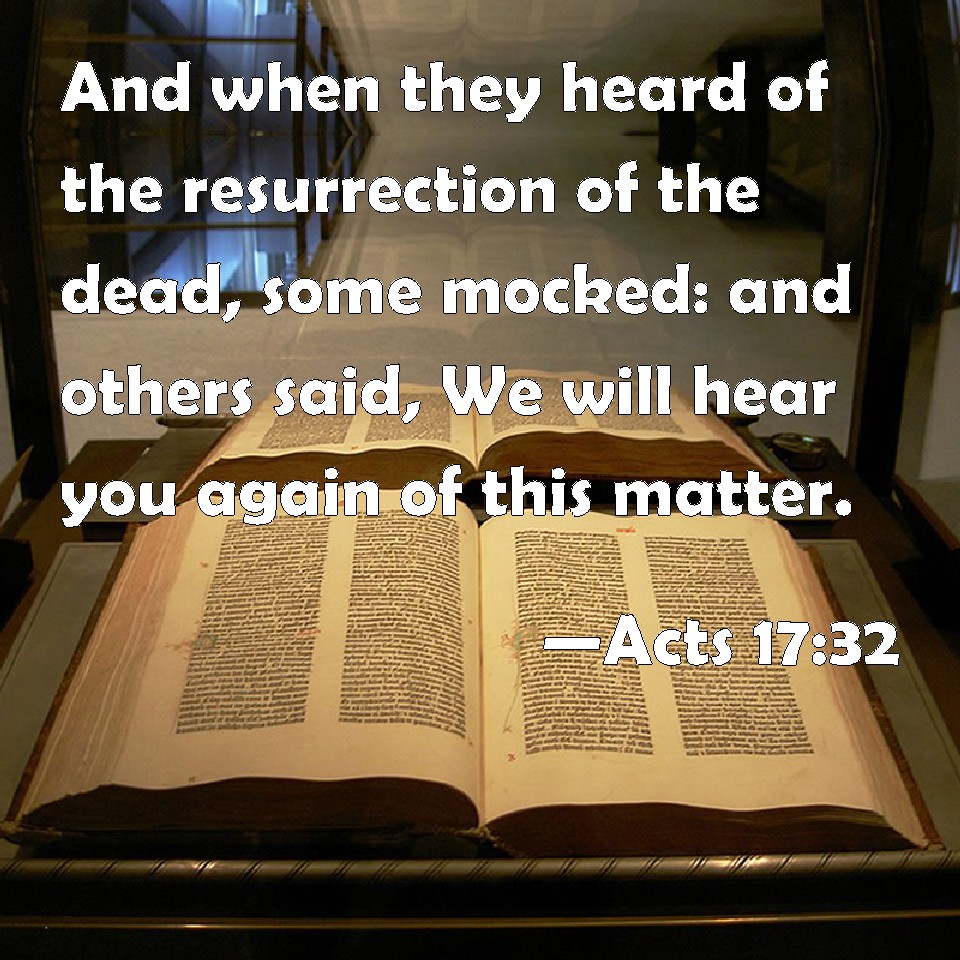
Teaching us the hope of immortality and the transformation that comes with it. Thirdly, Jesus revolutionizes the hedonistic mentality of the Sadducees namely materialism and the pleasure of the senses. 2:16-3:5 prays for God´s grace, eternal comfort, and good hope upon the Thessalonian Christians and encourages them to steadfastness in Christ as they await the Parousia: the Second Coming of Christ in glory preserving in good work and word. Paul in his second letter to Thessalonians. That is, there are many like the Greek King Antiochus (Politicians) who distort the truth and instil the spirit of error and deceit or the religious authorities (prosperity preachers) like the Sadducees who for material gains and pleasures deny, distort and mislead people from the eternal truth. Equally, he warned us to pray for deliverance from perverse and wicked people who do not have or live by faith. Paul encourages us to live a gracious life of everlasting encouragement and good hope. Hence, in the first reading 2 Maccabees 7:1-2, 9-14 the hope of the resurrection and immortality form the sacrificial courage of the seven brothers and their mother to face the cruel martyrdom for their faith conviction despite the torture and mockery. The Maccabean brothers and mother lived this out amidst agonies and cruelties. This lifts us from the fear of death, pains, suffering, agonies and sacrifice to the hope of a new and blessed life offered in Christ Jesus. These readings of today offer us some fundamental assurances and establish some basic facts: FIRST READING: 2 MACCABEES 7:1-2, 9-14įirst, the reality of the resurrection of the dead and the promise of eternal life.

The readings invite us to consider the true meaning of the Resurrection in our lives. In a nutshell, the main theme of today’s readings is the reality of life after death and the relationship between our lives on earth and the life of glory or punishment that will follow. The readings of this Sunday as we get close to the end of the liturgical calendar invite us to reflect on the theme of the resurrection of the dead and eschatology.Īs well as, they call on us to scrutiny the traditional Jewish practice of Levirate: where a man has to marry his childless deceased brother´s widow to beget him children that will continue or maintain his name. It is also a transformational change that offers us: life amidst death hope amidst despair, joy amidst sufferings and struggles, and faith and light amidst gloominess and darkness. The resurrection is not just a mystery of an afterlife experience that changes our perception of human life as here and now existence. As Paul, the apostle said: “Eye has not seen, nor ear heard, nor has it entered into the heart of any person to imagine what God has in store for those who love him.” OUR THEME

But it is what Shakespeare memorably called “The undiscovered country from which no traveller returns.” Though nobody comes back to confirm it for us, through Jesus we believe it is there, just the same. The human heart feels an inherent hope for the afterlife.

Practically, what gives meaning to our human life in this valley of tears, pains, suffering and death is our hope in the resurrection. In general, our life is the most unfortunate if it is not anchored spiritually in the hope of the resurrection. Paul would argue, without our hope in the resurrection of the dead, we are the most miserable or pitiable people on earth.
32 lives resurrected full#
To give full meaning to our hard and miserable human existence.Īs St.

It is a religious or spiritual reality that every religious faith holds onto. It is an existential reality of our human life on earth. The Afterlife reality or experience is not just a Christian hope of the resurrection of Christ Jesus through the action of the Holy Spirit.


 0 kommentar(er)
0 kommentar(er)
